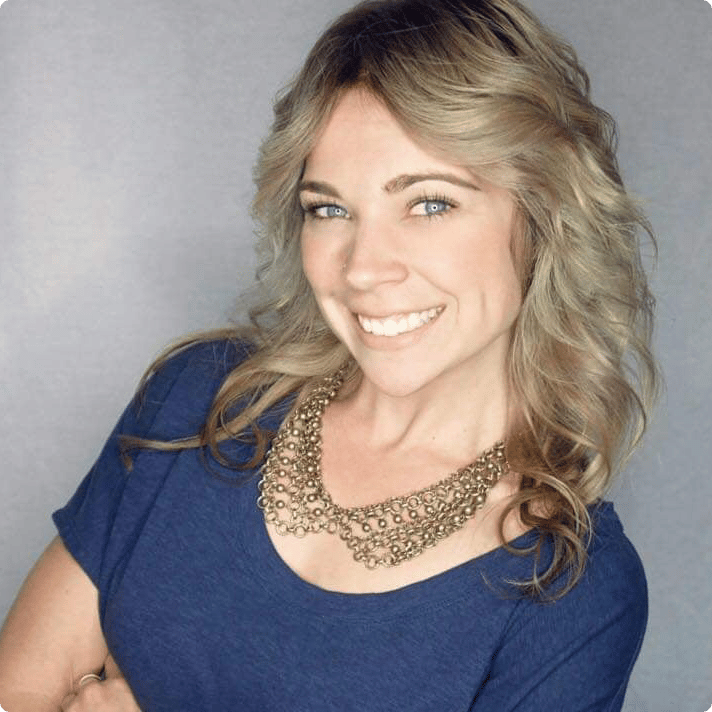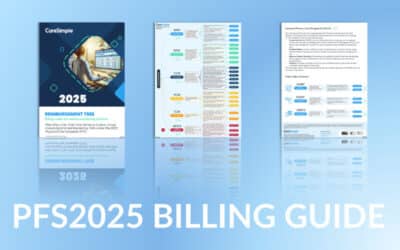CareSimple
The Remote Patient Monitoring Company Making Virtual Health Simple
Virtual Health Made Simple
CareSimple empowers payers and providers to take the complexity out of hospital at home (HaH), population health, chronic care management and remote patient monitoring (RPM), opening the door to new revenue models, reducing hospital readmissions, generating higher patient satisfaction and ultimately, improving clinical outcomes.
Leading Remote Patient Monitoring Company for Payers, Providers & Patients
CareSimple works with healthcare organizations both large and small, providing them with the logistics, clinical software, 4G medical devices, electronic health record (EHR) interoperability, and connectivity necessary to launch a successful RPM program. A sampling of our company’s clinical partners today include:
How CareSimple Works
Order CareSimple RPM
A good remote patient monitoring company saves you time by integrating seamlessly in your operations. We work directly from your electronic health record to order remote patient monitoring or chronic care management. CareSimple syncs with your EHR, saving you from error-prone manual entry and data duplication.


CareSimple onboards your patients
We then directly ship preconfigured monitoring devices to your patients that work out-of-the-box. CareSimple removes the need for an app, pairing, WiFi, and setup found in many remote patient monitoring companies. We can also take care of welcoming them to the RPM program and walking them through their first health reading.
Your care team (or ours) monitor new data and alerts
The CareSimple telehealth platform offers a comprehensive array of tools designed to help identify which patients need your attention, and when. Our RPM company also provides alerts management and escalation services if additional support is needed.


Everything is synchronized with your EHR
With our leading EHR integration capabilities, health vital signs are synchronized in near real time, as well as patient demographic data, reporting and clinical activity. Manage all your data from a central access point thanks to a healthcare remote patient monitoring company.
Drive better outcomes
In addition of rich population health reports, your biller gets a monthly report with RPM reimbursement metrics for CPT codes 99091, 99453, 99454, 99457 and 99458, as well as chronic care management (CCM) reimbursement metrics for CPT codes 99490 and 99491.

Why CareSimple is the Right Remote Patient Monitoring Company for You
Simple RPM
With CareSimple, there is no need to worry about your patient’s age, whether or not they are tech-savvy or if they have the financial means to participate in an RPM program. Our company offers the perfect patient monitoring program for individuals of any demographic. Health simplified!
Complete
CareSimple provides RPM devices, software, shipping, warehousing, EHR integration, patient support and program management all under one umbrella. The complete telehealth delivery solution for healthcare providers and payers.
Quality
While RPM solutions are not subject to safety and quality regulations, CareSimple is voluntarily FDA-registered and ISO-certified for quality (13485) and security (27001). An industry leading remote patient monitoring company you can entrust your patient’s health too.
Control
Uniquely, CareSimple was built vertically through major research and development initiatives. With this approach, we completely own our RPM product, which means we can listen and adapt to your specific clinical workflows like no one else. Offer the right health support to your patient at all times with our telehealth solution.
What Users are Saying
About Our RPM Technology
New and Noteworthy
The Cost of Telemonitoring: Top Financial Considerations
There are numerous use cases for remote patient monitoring. In this blog, learn about how it supports care management services like transitional care, hospital-at-home, and more.
What to Look for in the Best Remote Patient Monitoring Software
There are numerous use cases for remote patient monitoring. In this blog, learn about how it supports care management services like transitional care, hospital-at-home, and more.
10 Benefits of Remote Patient Monitoring for Patients
There are numerous use cases for remote patient monitoring. In this blog, learn about how it supports care management services like transitional care, hospital-at-home, and more.
CMS Simplifies Remote Care in 2025 with New APCM Codes
The 2025 Physician Fee Schedule Final Rule by CMS brings changes that will positively impact the growth and adoption of remote care management services for 2025 by both making it simpler and extending to FQHCs and RHCs.
RPM devices offered by our company
CareSimple offers industry leading patient monitoring devices allowing healthcare professionals to monitor vital signs near-instantly and with precision. All our monitors are designed to integrate in a central health monitoring platform, collecting fast and error-free health data.
All our devices, such as blood pressure monitors, glucometers and pulse oximeters, are FDA-cleared to ensure the health of your patients and of various end users, such as patients suffering from diabetes. The transmission capabilities of our remote patient monitoring products are tested on a monthly basis by our experts, making them some of the most reliable devices on the market.
Frequently Asked Questions About Remote Patient Monitoring Companies and Telehealth
What is CareSimple?
CareSimple is a leading virtual care company that provides all equipment, software and services needed for payers and providers to offer remote hospital at home (HaH), population health, chronic care management (CCM) and remote patient monitoring (RPM) services. As a turnkey and quality-focused solution, we enable our customers to take complexity out of remote patient monitoring and focus on driving new revenues, reducing ER visits, increasing patient satisfaction and improving outcomes.
What is Remote Patient Monitoring?
RPM is a technology offering that enables the monitoring and collection of patients’ physiologic measures outside of a traditional healthcare environment, such as at a patient’s home or office. Finding a vendor that is able to serve as both a mentor and partner, such as CareSimple, should be one of the key steps of implementing a successful RPM program.
Finding a telemedicine solution that is able to serve as both a mentor and partner, such as CareSimple, should be one of the key steps of implementing a successful RPM program.
How is CareSimple Different from Other Remote Patient Monitoring Companies?
As can be seen in this video from a KLAS Spotlight Report made in the fall of 2021, 100% of interviewed customers would buy back from CareSimple. CareSimple’s solution for hospital at home (HoH), population health, chronic care management, remote therapeutic monitoring (RTM) and remote patient monitoring (RPM) offers a unique combination of simplicity for patients, nearly plug and play EHR integration capabilities, demonstrated results, medical-grade ISO-certified quality and security, more than a decade of experience, acclaimed customer service and distribution through your preferred group purchasing organization (GPO). These attributes are among the reasons why CareSimple is the leading virtual care technology solution for both providers and payers.
What is Chronic Care Management?
CCM is a coaching service provided by health care professionals to guide patients with chronic conditions in order to better understand their health and the necessary actions they can take to improve their quality of life. Having a solution that fits seamlessly within your electronic health record (EHR) can optimize the efficiency of your CCM program.
Can RPM and CCM Be Combined?
Absolutely! RPM, which was initially used by healthcare professionals to monitor patients following post-acute events, has emerged as a great complement to CCM for patients with chronic conditions such as hypertension, heart failure, diabetes, COPD and asthma. The CareSimple solution supports both programs, which are reimbursed by Medicare and can be managed by the same personnel, creating more streamlined operational synergies and a better, more engaging experience for patients to improve outcomes.
Is Running a Remote Patient Monitoring System Complex?
A Remote Patient Monitoring System requires commitment and planning but can be quite simple to implement and operate with the right team and tools. CareSimple was launched with the goal of making remote patient monitoring simple enough for anyone regardless of age, condition or socioeconomic status. This is accomplished by removing many of the technical challenges commonly found with alternative remote care models and provisioning technology. Offering seamless patient-to-cloud data transmission, smart alerts, effective engagement, and automatic documentation capabilities, and through integration with the EHR, patient vital signs are collected and then received in near real time from the cellular-enabled devices. This approach empowers providers with a holistic view of their patients’ health to help improve patient care.
How Do Remote Patient Monitoring Devices Work?
Some of the typical patient monitoring devices are blood pressure cuffs, body scales, heart rate and pulse oximetry monitors, blood glucose monitors, spirometers, and thermometers. While they may look like any other medical device, it’s their unique, underlying connectivity that enables reading data to be transmitted to healthcare professionals. While other vendors require that the devices be paired with a hub, smartphone or tablet to transmit data, this can create complexity for the providers setting up the devices, and for the patients using them on a daily basis. CareSimple cellular-enabled devices have built-in SIM cards that automatically transmit patient readings, meaning that no pairing, app or WiFi is needed for patient monitoring. This provides a senior-friendly user experience and reduces the amount of technical support problems that need to be managed.
Who Can Administer RPM?
While only physicians and non-physician practitioners (NPPs) are eligible to bill for RPM, the reimbursement rules are under general supervision, which means that services can be provided by a broader number of clinical staff. Typical RPM teams consist of medical assistants (MAs), licensed nurse practitioners (LPNs), registered nurses (RNs) and a medical supervisor (MD). When staff vacancies are an issue, CareSimple is well positioned to help any patient, payer and healthcare provider fill these clinical resource gaps with highly trained health professionals.
What is the Return on Investment (ROI) of Remote Patient Monitoring?
RPM has been shown to reduce acute care use for patients with certain chronic conditions (Systematic Review), while driving important cost reductions for employers, payers and providers engaged in risk-sharing contracts. Fee-for-service health providers can also financially benefit from RPM, with Medicare reimbursing its use for post-acute and chronic patients with CPT codes 99091, 99453, 99454, 99457 and 99458. CareSimple provides monthly instructions for how to claim these codes, along with CPT codes 99490 and 99491 for CCM.
What Are the Patient Benefits of RPM?
RPM empowers patients to take charge of their health through telemedicine, allowing them to manage their chronic condition from an environment where they are most comfortable. The CareSimple program wirelessly sends the information from a compatible medical device directly to their health file for remote review and monitoring by their provider. With the data gained through telemedicine, their care team can check on the patient’s health status and quickly make decisions on how to provide the best care moving forward, whether it be a change in a treatment plan or a medication adjustment.
RPM’s regular monitoring of chronic health conditions helps with keeping a patient’s measurements within range, which can prevent or delay emergency room visits and ultimately reduce costly hospital readmissions.

















